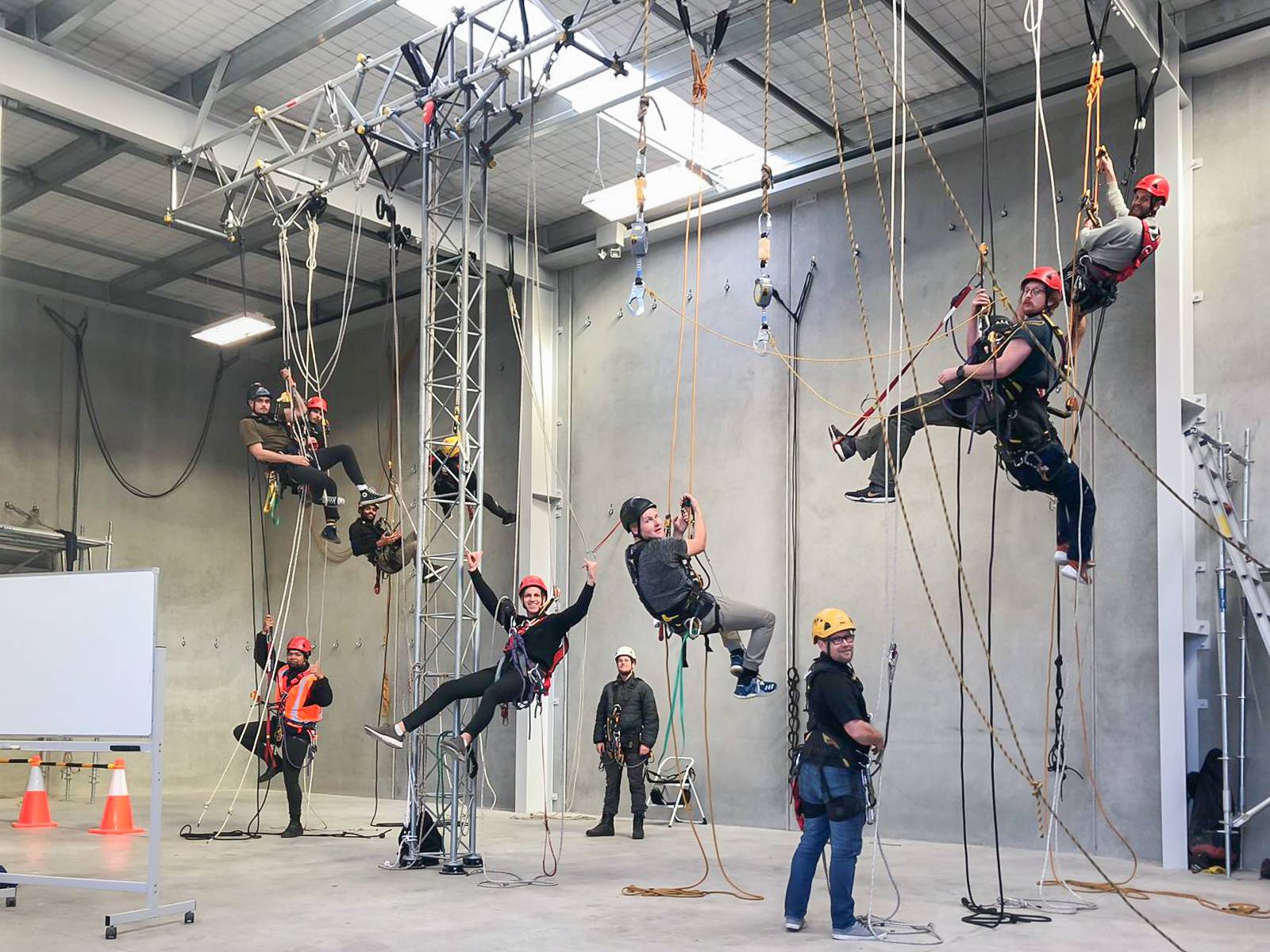If you are interested in a career in industrial rope access, you can do the New Zealand Certificate in Industrial Rope Access (Level 3). This is the first step on the industrial rope access pathway and covers the basics of industrial rope access.
As a graduate of this programme, you will be capable of working under limited supervision doing basic rope access tasks on a range of rope access sites. You will attain basic on-rope vertical skills using constructed anchors. This includes the ability to conduct rope access work including inspecting and testing, maintenance and repair, cleaning and painting, geotechnical and construction activities. This programme is aligned to the IRAANZ Certificate of Competency for Level 3 Rope Access Operators.
To enrol in this course, you will need to:
- be employed and engaged with work related to industrial rope access
- have existing knowledge and skills in numeracy that includes/ exceeds what is covered in unit standard 8489; and
- hold a current comprehensive workplace first aid certificate.
The New Zealand Certificate in Industrial Rope Access (Level 3) takes approximately six to ten months to complete and is done through block courses, on-the-job learning, and verification.
For more information or to enrol, please click here.
